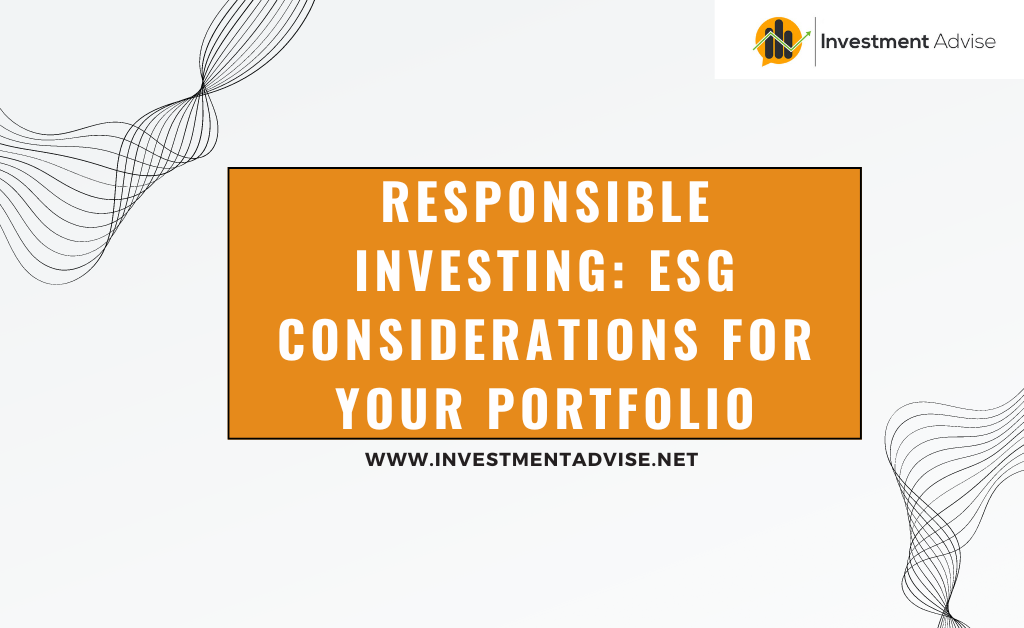The investment landscape (investing 1) is undergoing a profound transformation, driven by a growing awareness of environmental, social, and governance (ESG) factors. Investors are increasingly recognizing that considering these factors can not only align their portfolios with their values but also potentially enhance long-term returns. Let’s delve into the world of responsible investing and explore how ESG considerations can shape your investment decisions.
Understanding ESG
ESG is a framework used to evaluate a company’s performance in three key areas:
- Environmental: This encompasses a company’s impact on the environment, including its carbon footprint, resource consumption, waste management, and pollution control efforts.
- Social: This focuses on a company’s relationship with its stakeholders, including employees, customers, and communities. Factors such as labor practices, diversity and inclusion, and community engagement fall under this category.
- Governance: This refers to a company’s leadership structure and practices, including board diversity, executive compensation, and transparency.
The Benefits of Responsible Investing
Embracing responsible investing offers a multitude of advantages:
- Alignment with Values: Investing in companies that share your values can provide a sense of purpose and satisfaction.
- Mitigating Risks: ESG factors can identify potential risks that traditional financial analysis might overlook. For example, a company with a poor environmental record could face regulatory challenges or reputational damage.
- Long-Term Performance: Research suggests that companies with strong ESG profiles often outperform their peers over the long term. This is attributed to their ability to manage risks, innovate, and attract talent.
- Positive Impact: By investing in companies that prioritize sustainability and social responsibility, you contribute to a more sustainable future.
Integrating ESG into Your Portfolio
There are several ways to incorporate ESG considerations into your investment strategy:
- ESG-Focused Funds: These funds invest in companies with strong ESG ratings. They offer a convenient way to gain exposure to ESG without extensive research.
- Thematic Investing: This involves investing in companies that operate in sectors aligned with ESG themes, such as renewable energy, clean technology, or sustainable agriculture.
- Individual Stock Selection: For experienced investors, conducting in-depth ESG research on individual companies can be a rewarding approach.
- Engaging with Companies: As a shareholder, you can engage with companies to encourage positive ESG practices. This can involve voting on shareholder resolutions or participating in company dialogues.
Challenges and Considerations
While responsible investing offers significant benefits, it also presents challenges:
- Data Quality: ESG data can be inconsistent and incomplete, making it difficult to compare companies accurately.
- Greenwashing: Some companies may exaggerate their ESG credentials to attract investors, a practice known as greenwashing.
- Trade-offs: Balancing ESG considerations with financial returns can sometimes be complex.
Conclusion
Responsible investing is a powerful tool for aligning your investments with your values and potentially enhancing your long-term returns. By understanding ESG factors and carefully considering your investment options, you can make a positive impact on the world while building a robust portfolio. Remember, responsible investing is a journey, and continuous learning and adaptation are essential.














